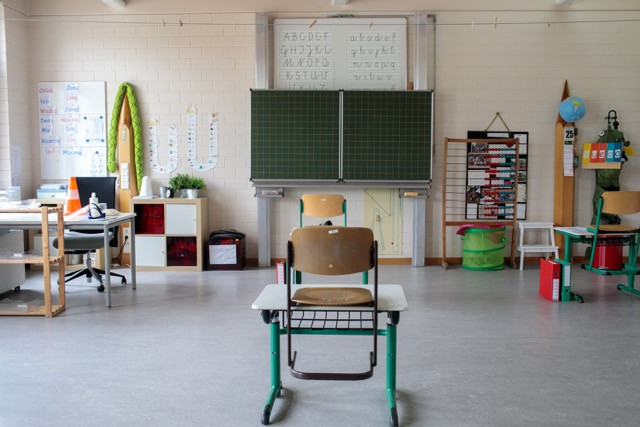As public schools gear up for the new term, with a resumption of classes every day for all, the health crisis is still having an impact. “It’s been a year unlike any other,” says Patrick Remakel, president of the SNE national union for primary school teachers. Indeed, with students, teachers and parents first having to adapt to “Schoul Doheem” and then returning to school with a system of alternating groups, “normal” schooling has not been possible since 13 March.
“I feel that we have been mostly talking about health measures and that we have forgotten the students,” says Patrick Arendt, secretary of the SEW-OGBL union. “The crisis will not end anytime soon, it will continue throughout the year and beyond. Children who do not have help at home may be the big losers in this crisis.”
Remakel says that teachers have made great efforts to guarantee distance education during confinement. But he says that even though students continued to receive an education they missed out on much else that schools provide. “What has been lacking above all is interaction between students and their teachers, who have thus not been able to directly remedy any weaknesses. Some students have things to catch up on.”
Mixed home-schooling results
As for the success of home-schooling, the results have been mixed, says Alain Massen, president of the national parents’ representation. “Some students were very well supervised at home and could be helped by their parents, while others struggled for various reasons--language problems, lack of skills and the non-availability of parents who had to work during confinement because they were in an essential occupation.” There is a disparity, says Massen, between students probably dropped out a bit and their counterparts who were “over-stimulated” and used confinement to study a lot and improve their grades.
In view of this, even if the extent of the phenomenon has not yet been measured, the ministry of education has launched optional remedial courses since the beginning of September, which will continue during the first semester. “It is a good thing to do something, but since these are optional courses, we are not sure whether we are targeting 100% of the students involved,” says Remakel. “It is up to the parents to decide whether or not their child participates.”
The SEW-OGBL reckons the measures taken at the moment are superficial. “The remedial courses in primary classes consisted of four or five 2-hour sessions with staff mainly composed of students who had no teacher training. It takes much more than a week to get to know children and identify their shortcomings.”
Union proposals
The unions had advocated for another formula. “We have made a proposal to the minister that additional resources should be given to schools from 15 September to ensure that we reach all students,” Remakel explains. “School is the best way to catch up with a school delay.”
Arendt takes a similar view, but the SEW took an alternative route in suggesting that experienced but underutilised staff in administrative roles in successful school programmes be reallocated. The ministry rejected the idea.
Meanwhile, the parents' representation is advocating that “teachers focus on upgrading skills during the first six weeks” of the new school year. “Our message to the ministry and teachers is to take time. It is important to take care of students who fell behind early in the school year to level the playing field.”
The SEW-OGBL has also proposed to bring forward the standardised tests in order to be able to evaluate the level of students from the beginning of the school year. “We are more concerned about students who have fallen behind than about the ventilation of classrooms or the wearing of masks,” the union says.
This article was first published in French by Paperjam. It has been translated by Delano.
